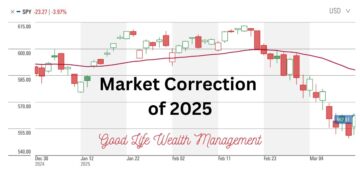As part of monitoring your investments, you should have defined reasons when to sell a fund. It is important to distinguish between market timing and valid reasons for selling. Don’t sell an index fund and buy an actively managed fund just because the active fund has outperformed recently. That is performance chasing – and you need to guard against this.
There are a couple of scenarios when you might want to sell a fund, primarily if it is to fix your portfolio. There is probably not a bad time to do this, although investors often agonize over the timing of moves. We cannot predict the future. If you know your portfolio has problems, make those changes and move on.
Three Sales to Fix Your Portfolio
First, if you have narrow funds, such as a sector fund, I would suggest you sell those and get into a broader index fund. If you are up, and have a nice gain, go ahead and sell. Don’t wait until the fund or stock has tanked. If it has tanked, take your loss and learn a lesson. You may hope that it will come back, but hope is not a good investment rationale. While you are waiting for it to come back, perhaps you could be growing your portfolio in an index fund.
I’m not going to recommend that you try to own individual stocks in your portfolio. That is speculative and a distraction for most investors to growing your wealth. I know many millionaires who invest in funds, but not many who got there with individual stocks. The majority of people who are trading stocks have tiny accounts. According to the NY Times, the popular trading app, Robinhood has only an average account of $4,800. Focus on your accumulation and being a market participant, not a speculator. If you’ve had good luck with individual stocks, take your gains and get into index funds.
Second, if you are invested in a fund or product that has high expenses, switch to a low-cost index fund. For example, if you have an actively managed fund, an A-share mutual fund with 12b-1 fees, or a fund in a Variable Insurance product, your expense ratio might be 0.75%, 1.00% or more a year. An index fund might be one-tenth of that, 0.10% or less for many categories. When your goal is long-term growth through market participation, costs are a direct drag on your performance. That’s a good reason to sell.
Interestingly, the average active manager often (slightly) beats their benchmark before fees. It’s just that the drag of a 1% expense ratio, in a market that returns 5% or 10%, eats up all the benefits the managers can create. Over time, low expenses are correlated with better performance.
Third, you may want to sell some of your funds to establish your target asset allocation. Most of your performance is based on your overall asset allocation. I see many younger investors who start out 100% in stocks and as they grow their wealth, eventually realize that they need some bonds. Other investors have some bonds, but no target allocation to use for rebalancing. So, start with your recipe first and adjust your funds to fulfill your target allocation. Otherwise, you end up with a poorly diversified portfolio.
Staying Invested
If you are already invested in a low cost, diversified index fund, why sell it ever? I can think of two good reasons: rebalancing and tax loss harvesting. Outside of that, investors can do quite well by having little or no turnover and sticking with low cost Index funds for not just years, but decades.
What aren’t reasons for a long-term investor to sell? Coronavirus. Elections. Business cycles. News.
Sure, those things can impact stock prices in the short-term. But staying the course in an Index Fund seems to work better than any other strategy. So, yes to selling sector funds, single stocks, and high-expense funds to replace them with an Index Fund. Yes to the occasional sale for rebalancing or tax loss harvesting. Outside of those reasons, try to keep your diversified allocation and stick with your index funds. Now, if you are within five years of retirement and are concerned about risks to your retirement income, let’s talk about how to make sure you are on the right path.
I am posting this because right now volatility seems to be picking up into the election. And over the next two months, I worry that a lot of investors are going to feel spooked. You’re going to hear a lot of opinions about what is going to happen. And markets could, indeed, go down. That’s always a possibility. That’s the inescapable reality of being an investor. But, our approach is to stay the course in turbulent times and be patient. As unique as today’s challenges are, there were unique challenges before. Markets prevailed.







